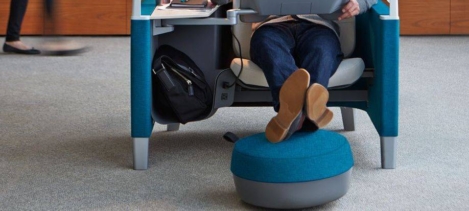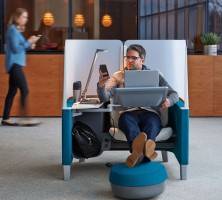January 22, 2016
Unsympathetic bosses don’t want sick employees at work or the doctors 0
 Employers don’t want employees coming to work when they’re sick, but are frustrated by working time lost to doctors’ appointments, according to new research by AXA PPP healthcare. Nearly a third (32 percent) of bosses (owners, directors, senior and middle managers) say they’d prefer employees to take time off sick rather than come to work ill, yet 29 percent are frustrated by the working time lost when employees take time off for medical appointments. This is why employees tend to wait for a week to see if they recover before seeking medical advice, while over a third (35 percent) delay seeking treatment due to work hours and pressures. Over a quarter of bosses admit to asking an employee what’s wrong in order to find out whether their condition is serious enough to warrant taking time off and twelve percent say they would ensure that employees who attend medical appointments during working hours make up for the missed time.
Employers don’t want employees coming to work when they’re sick, but are frustrated by working time lost to doctors’ appointments, according to new research by AXA PPP healthcare. Nearly a third (32 percent) of bosses (owners, directors, senior and middle managers) say they’d prefer employees to take time off sick rather than come to work ill, yet 29 percent are frustrated by the working time lost when employees take time off for medical appointments. This is why employees tend to wait for a week to see if they recover before seeking medical advice, while over a third (35 percent) delay seeking treatment due to work hours and pressures. Over a quarter of bosses admit to asking an employee what’s wrong in order to find out whether their condition is serious enough to warrant taking time off and twelve percent say they would ensure that employees who attend medical appointments during working hours make up for the missed time.














 A new meta analysis compiled by researchers from Harvard Business School and Stanford University raises questions about the way Government and organisational policies designed to tackle the problems of work related health costs in the United States have largely ignored the health effects of ‘psychosocial workplace stressors’ such as high job demands, economic insecurity, and long work hours. The analysis of 228 existing studies assessed the effects of ten workplace stressors on four specific health outcomes. The researchers claims that job insecurity increases the odds of reporting poor health by about 50 percent, high job demands raise the odds of having a diagnosed illness by 35 percent, and long work hours increase mortality by almost 20 percent. They argue that any policies designed to address these issues should account for the health effects of the workplace environment.
A new meta analysis compiled by researchers from Harvard Business School and Stanford University raises questions about the way Government and organisational policies designed to tackle the problems of work related health costs in the United States have largely ignored the health effects of ‘psychosocial workplace stressors’ such as high job demands, economic insecurity, and long work hours. The analysis of 228 existing studies assessed the effects of ten workplace stressors on four specific health outcomes. The researchers claims that job insecurity increases the odds of reporting poor health by about 50 percent, high job demands raise the odds of having a diagnosed illness by 35 percent, and long work hours increase mortality by almost 20 percent. They argue that any policies designed to address these issues should account for the health effects of the workplace environment.

















June 25, 2015
Long distance commuting, agile working and dinosaur extinction in the UAE
by Douglas Langmead • Cities, Comment, Flexible working, Property
(more…)